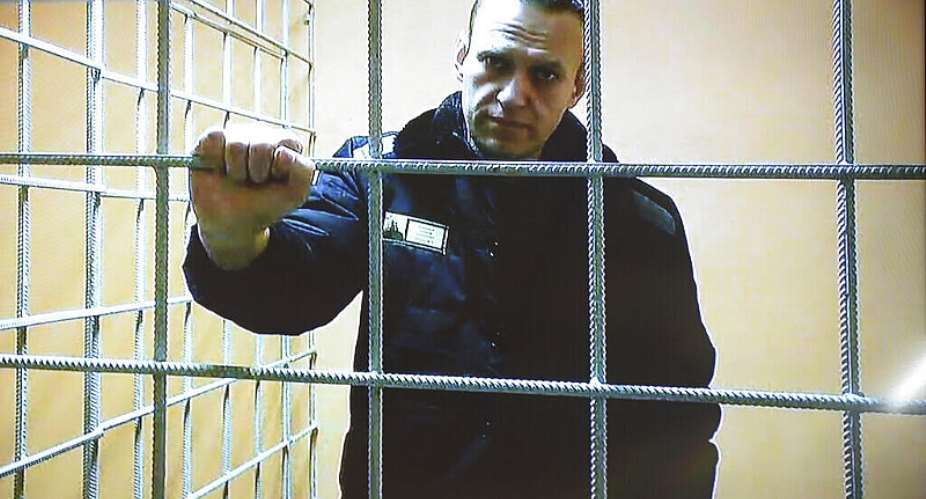On Friday, February 16th, longtime Russian opposition leader Alexei Navalny died at the IK-3 penal colony in Kharp, Russia after losing consciousness during a walk. Russian officials described it as sudden death syndrome, according to Navalny’s mother.
Corruption is soaring in Russia under Vladimar Putin’s autocratic rule. Navalny exposed this with his Anti-Corruption Foundation (FBK), a nonprofit organization that he founded in 2011 with the purpose of combating corruption and investigating high-ranking Russian government officials.
Navalny’s 2021 documentary “Putin’s Palace” has garnered over 130 million views on YouTube, challenging the status quo of Putin and his oligarchs by depicting their insatiable desire for wealth. The documentary revealed a 15 year long bribe involved in building Putin’s Black Sea coastal palace, which the FBK estimated to be worth $1.4 billion. In 2022, the FBK also investigated Putin’s $700 million yacht with gold toilet paper holders, as well as his luxurious private planes which reeks of corruption given that Putin’s January 2024 financial disclosure indicates that he only makes $175K annually.
To further evidence that Putin’s properties were built with stolen Russian money, the FBK released a list of over 6,000 bribe takers and complicit war criminals in Putin’s illegal invasion of Ukraine.
It was unsurprising when news broke in August 2020 of a failed assassination attempt for Navalny, and it was later confirmed by the U.S. government that the Federal Security Service of the Russian Federation (FSB) was responsible for poisoning him with a chemical nerve agent. After all, to maintain power, Putin had to remove Navalny from the picture because of his more than 10 years of political opposition, which mobilized thousands of Russians in 2011 and 2012 to protest in Moscow and other cities against alleged fraud in the parliamentary elections that Putin’s United Russia party had won.
Navalny was barred from running against Putin for the Russian presidency in December 2018 because of a government embezzlement conviction of 16 million rubles ($500,000) in a timber deal. Navalny claimed the charges were attempts to silence him, according to Le Monde.
Despite his previous experiences in Russia, including getting apprehended multiple times, facing criminal charges and then being poisoned, Navalny decided to return to Russia in 2021, recognizing he would be arrested immediately. Navalny was detained at Moscow’s Sheremetyevo Airport on Jan. 17, 2021, while returning from Germany where he had been recovering for five months following his poisoning.
On March 22nd, 2022, after serving more than a year in prison, Navalny was sentenced to an additional nine years for embezzlement and contempt of court and transferred to a prison in Russia’s Vladimir region. Being incarcerated did not stop Navalny from resisting: he organized three-week long hunger strikes, shared social media posts condemning Russia’s invasion of Ukraine, filed lawsuits from behind bars, and even made an attempt to form a labor union inside prison.
In a 2021 interview, Putin’s fear of an incarcerated Navalny was on display as he refused to mention him by name, instead referring to him as “the person” who will be treated the same as anyone else incarcerated in Russia.
In December 2023, Navalny was transferred from the Vladimir region to the IK-3 penal colony, known as one of Russia’s harshest prisons due to the freezing winter temperatures, unsanitary conditions, and psychical and psychological abuse of the incarcerated. Although Navalny always tried to make light of difficult situations, his court appearances revealed his deteriorating health as a result of the weight he lost, his receding hairline, and sagging eyes. Navalny’s health had worsened from being held for 300 days in solitary confinement since 2022, being assigned to cellmates with severe mental conditions and hygiene issues, and not receiving adequate medical care for up to 18 months.
Professor Julie Goerge from the Queens College Political Science Department asserted that there are two views Navalny’s death represents for the future of Russia:
“One is a pessimistic view because the Russian government succeeded at murdering Navalny and so for them it may not mean anything at all except that it showcases Putin’s success. If Navalny’s death would go in any other direction it has been very insightful to watch the crowds at his funeral where thousands of people showed up risking being surveillanced and were chanting ‘no war’ which is currently illegal to do in Russia.”
In a video released shortly after Alexei Navalny’s death, Yulia Navalny, his wife, pledged to continue her husband’s anti-corruption efforts, exact revenge on Putin, and investigate the real circumstances surrounding Navalny’s murder.











